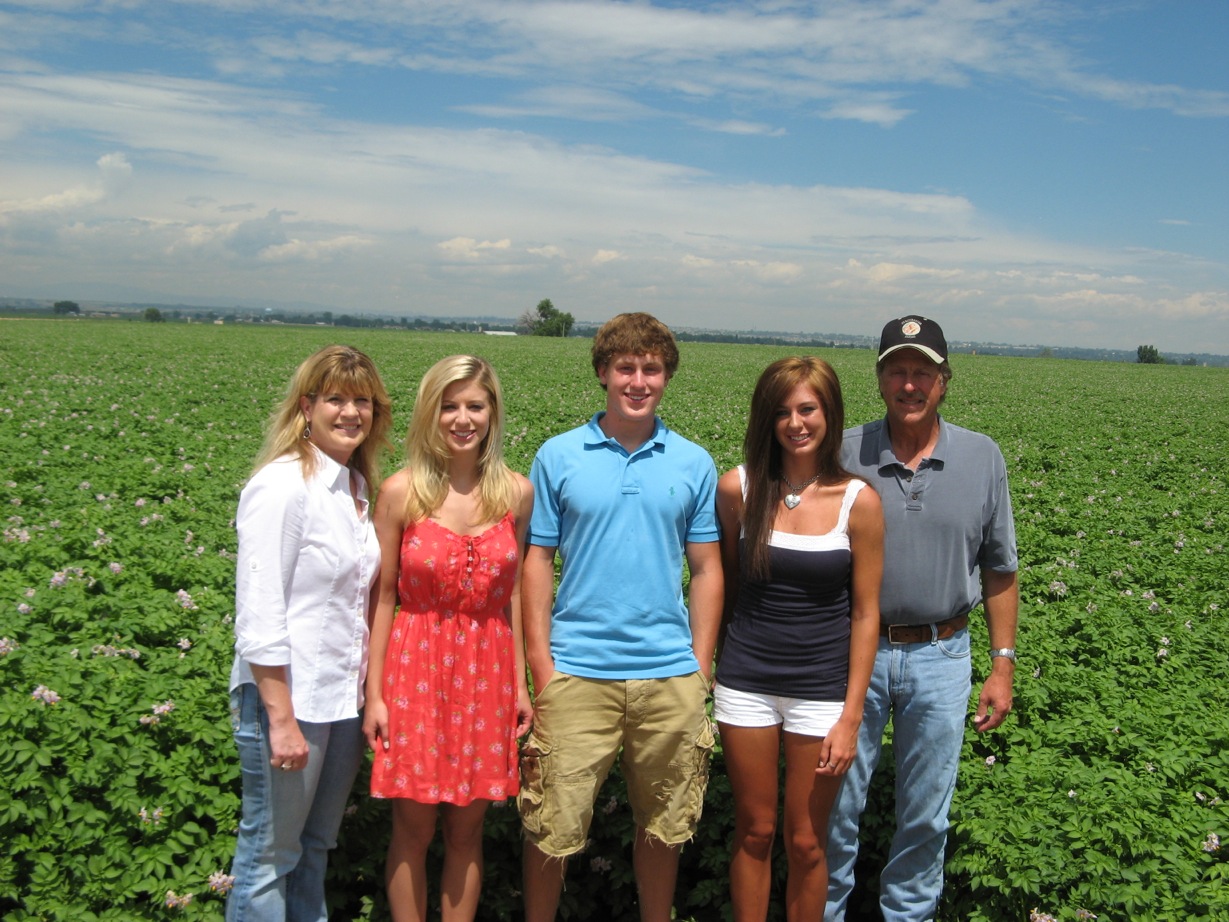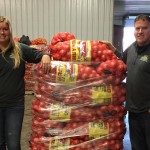Synonymous with the mainstay commodities of onions and potatoes and known for its production of specialty and organics in both categories, fourth-generation Strohauer Farms in La Salle, CO, north of Denver maintains the family commitment to good stewardship and excellent quality.
Its web site, www.strohauerfarms.com, sums it up thus: “We are blessed to be a team of 45 employees, in 2 communities, happily feeding over 1.5 million people…”
The Strohauer story in Colorado started in the early 1900s when John Strohauer emigrated from Germany and moved from Ellis Island to Colorado to become a farmer. He and his family – which included 10 offspring – farmed in the Greeley area.
Son Harry P. joined his father as a farmer in the 1930s, along with his brothers John and Paul. Today Harry P.’s son, Harry D., manages the operation with his wife, Katie, and two of their three children – Todd on the farm and Amber in marketing and business development. Daughter April is a teacher.
The born-and-bred Coloradans have expanded their commodity list in recent years, adding varieties and increasing organic acreage. Today, Amber says, “We grow both organic and conventional pearls (red, white, gold), boilers (red, white, gold), cipollinis (gold) and shallots, and only organic in our red, white and gold regular-sized onions.”
With harvest now complete, Strohauer Farms expects to have a good supply of product through March and into April, with conventional shallots shipping all year.”
We recently wrapped up onion harvest for 2015. We plan on having a good supply of product through March and into April. Our conventional shallots will ship all year.”
All varieties look good after mostly ideal growing conditions in Colorado, and Amber says the company is offering a new “Rocky Mountain Pure Organic” brand 3-lb. consumer bag this year.
As far as adding new varieties or new commodities to the manifest, the farm has no specific plans in that direction.
“Looking down the road, we are mainly looking at increasing our acreage on our current onion varieties rather than planting new varieties,” she said.


